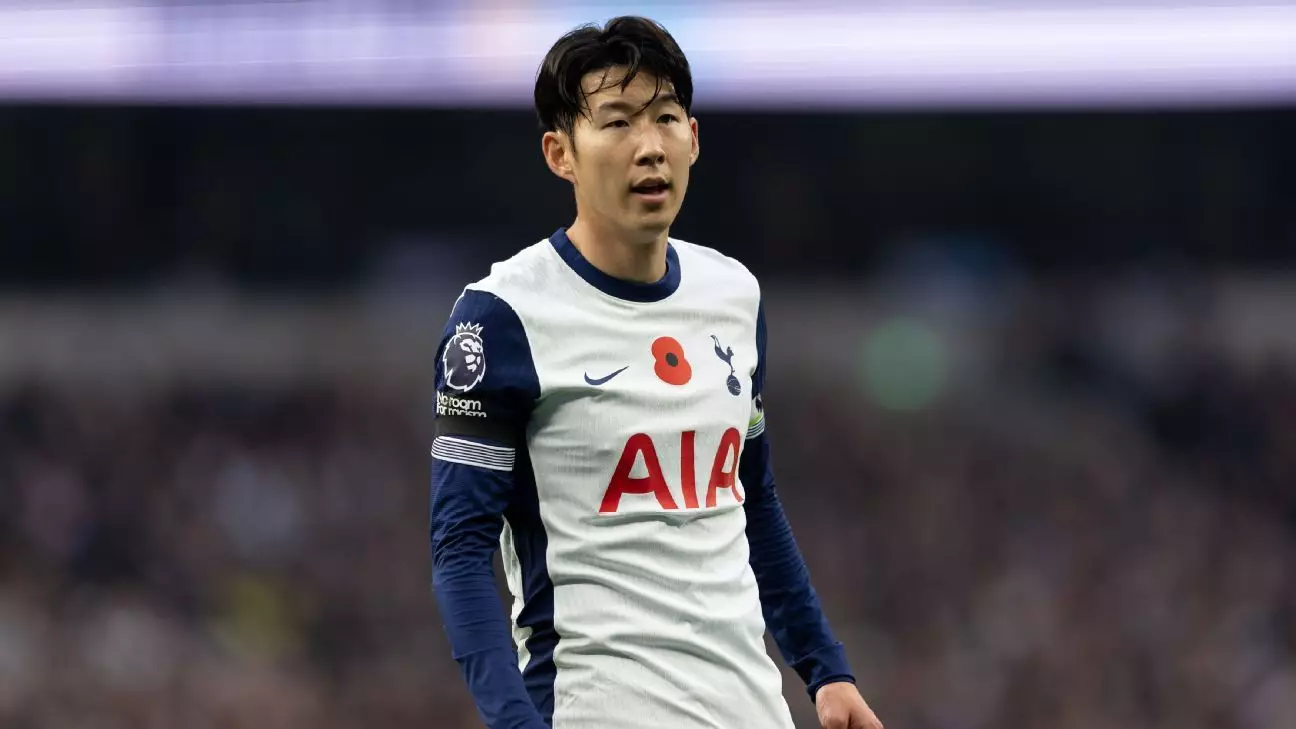Son Heung-Min stands as a central figure for both Tottenham Hotspur and the South Korean national team. His exceptional abilities on the field make him an invaluable asset, yet his fitness remains a critical concern. With the demands of club football and international obligations, the pressure intensifies surrounding his health and performance levels. The dialogue surrounding Son underscores a larger narrative about how clubs and national teams can effectively collaborate in managing player fitness, especially when injuries become part of the equation.
The recent timeline has seen challenges for Son, who returned from a debt of matches after an injury layoff. His re-entry into competitive play might have come too quickly, leading to a relapse that saw him re-aggravate a hamstring strain during a high-pressure game against Galatasaray. This situation accentuates a frustrating cycle—one where recovering players are often thrust into action, leaving their clubs and national teams to grapple with the consequences of fatigue and further injury. Coach Ange Postecoglou has clearly recognized the need for a cautious approach, ensuring that Son’s health is not jeopardized to fulfill immediate team needs.
As Son prepares to join his national team for World Cup qualifiers against Kuwait and Palestine, the dichotomy between his responsibilities at Tottenham and at the international level becomes even more pronounced. South Korea’s new coach, Hong Myung-Bo, has articulated his commitment to safeguarding Son’s health, emphasizing the importance of a strategic approach to match play. Hong’s philosophy stands as a proactive measure against the backdrop of Son’s recent injury concerns, showcasing a prudent understanding of player management during an era where athletic performance is increasingly scrutinized.
Postecoglou’s remarks reveal his desire for dialogue with the South Korean coaching staff, advocating for a partnership that prioritizes Son’s well-being. While he respects the autonomy of national team coaches, there is an underlying hope that a cooperative strategy can be developed for Son’s training and match usage. Fostering this collaboration is imperative, particularly in a sport where players often feel pressured to perform for both club and country. By prioritizing a shared commitment to health management, coaches on both sides can contribute to a sustainable career for players like Son.
Son’s predicament draws attention to a broader issue within professional sports: the fine line between a player’s eagerness to compete and the necessity of adequate recovery. After missing several games due to his earlier injury, any resurgence must be handled delicately to prevent falling back into a cycle of strain and recovery. For a player of Son’s caliber, managing his game time, especially as he eases back into form, is essential not just for his current season but for his longevity as a top-tier athlete. The insights from Postecoglou highlight this reality, as he seeks to build Son’s stamina while also minimizing risk.
As the international fixtures approach, the collaborative effort between Tottenham Hotspur and the South Korean national team becomes essential. The aim is to find a middle ground that allows Son Heung-Min to participate where possible while still ensuring his health remains the forefront priority. Effective communication and mutual respect will be paramount in crafting a plan that honors both the competitive nature of the game and the overall well-being of one of its top players. Ultimately, a strategic partnership could empower not only Son but also set a precedent for how clubs and national teams manage the complexities of player fitness in the demanding world of professional football.

Leave a Reply